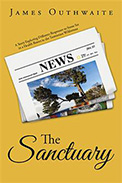
 |
Nine unrelated executives leave behind their frazzled jobs and personal disappointments for a week of cool down at a remote health resort in the Tasmanian Wilderness. The area contains a legend that includes an aboriginal curse. That said, cool down doesn't appear to be on the agenda as the CEOs are in for a rude awakening on day two when one attendee commits suicide and another murder. The mayhem continues when weather forecast predicts a four-day snowstorm, which means that they will be cut off from the outside world. The question remains whether or not the group can find a way to survive the remainder of the week.
"Today, with the increasing pace of social, technological, and political change, the number of people experiencing severe stress is rapidly on the increase. Whereas a certain amount of stress has a beneficial aspect, in that it prevents complacency and keeps people energized in response, once the amount of stress increases beyond a certain point, many people cannot cope, certainly without some help." Outhwaite's two-act read functions like a curious study in psychology. Outhwaite is forthright when he states in the preface, "This book is not meant to be a conventional thriller, with an action-centered plot." Indeed, Outhwaite incorporates sporadic narrative twists and turn. His intention is not so much in driving plot tension as it is in creating a scenario where readers observe a group of fatigued professionals forced into high-stressed situations. That said, Outhwaite purposefully designed his cast to represent a "full spectrum of coping responses." Quthwaite builds his cast by shining a light into each professionals emotional background. Although the background gives ideas as to how they may react, with a full spectrum of coping responses, it's hard to identify how the plot will unfold. Closing on a newsworthy note, The Sanctuary makes for interesting reading earmarked for those fascinated with psychology.
RECOMMENDED by the US REVIEW